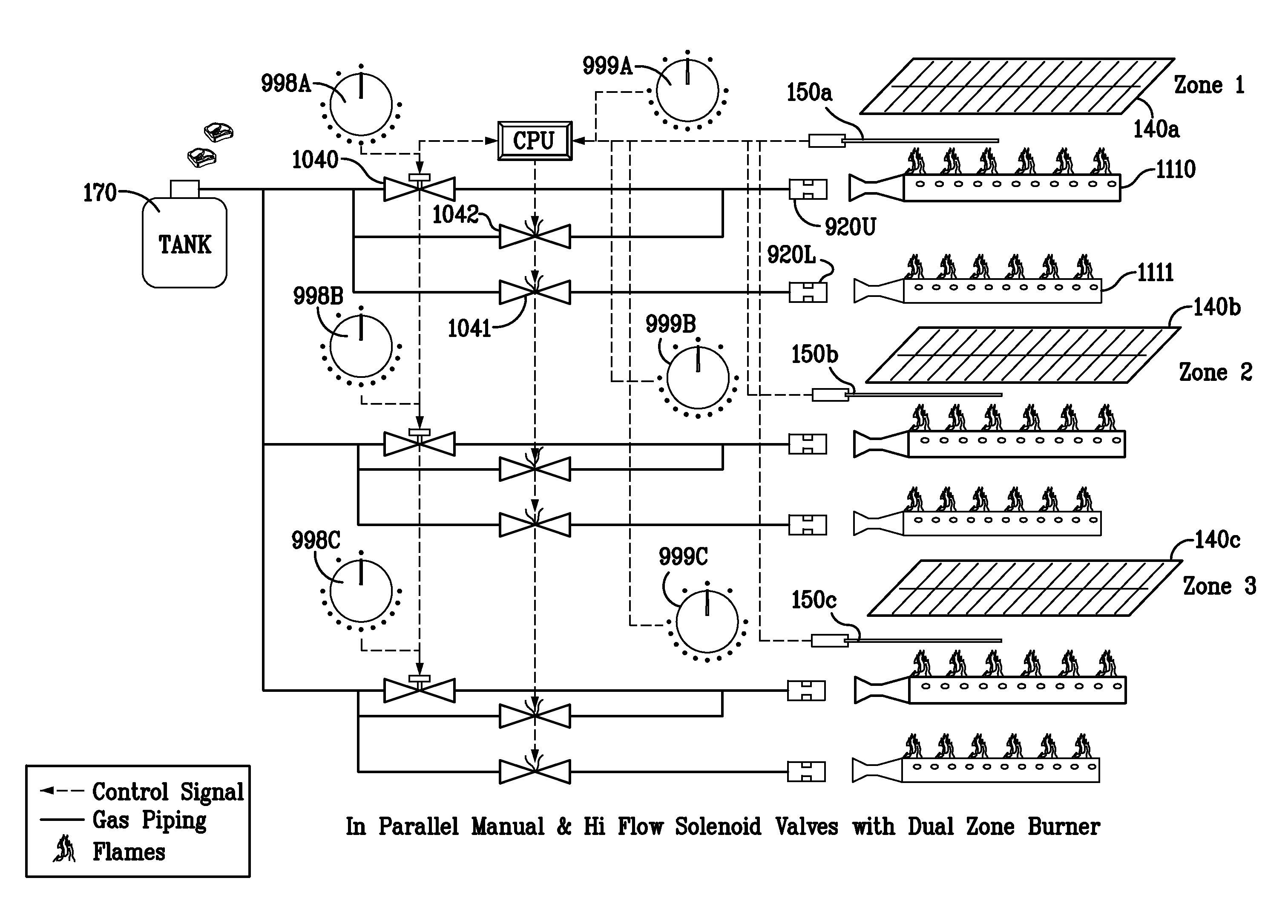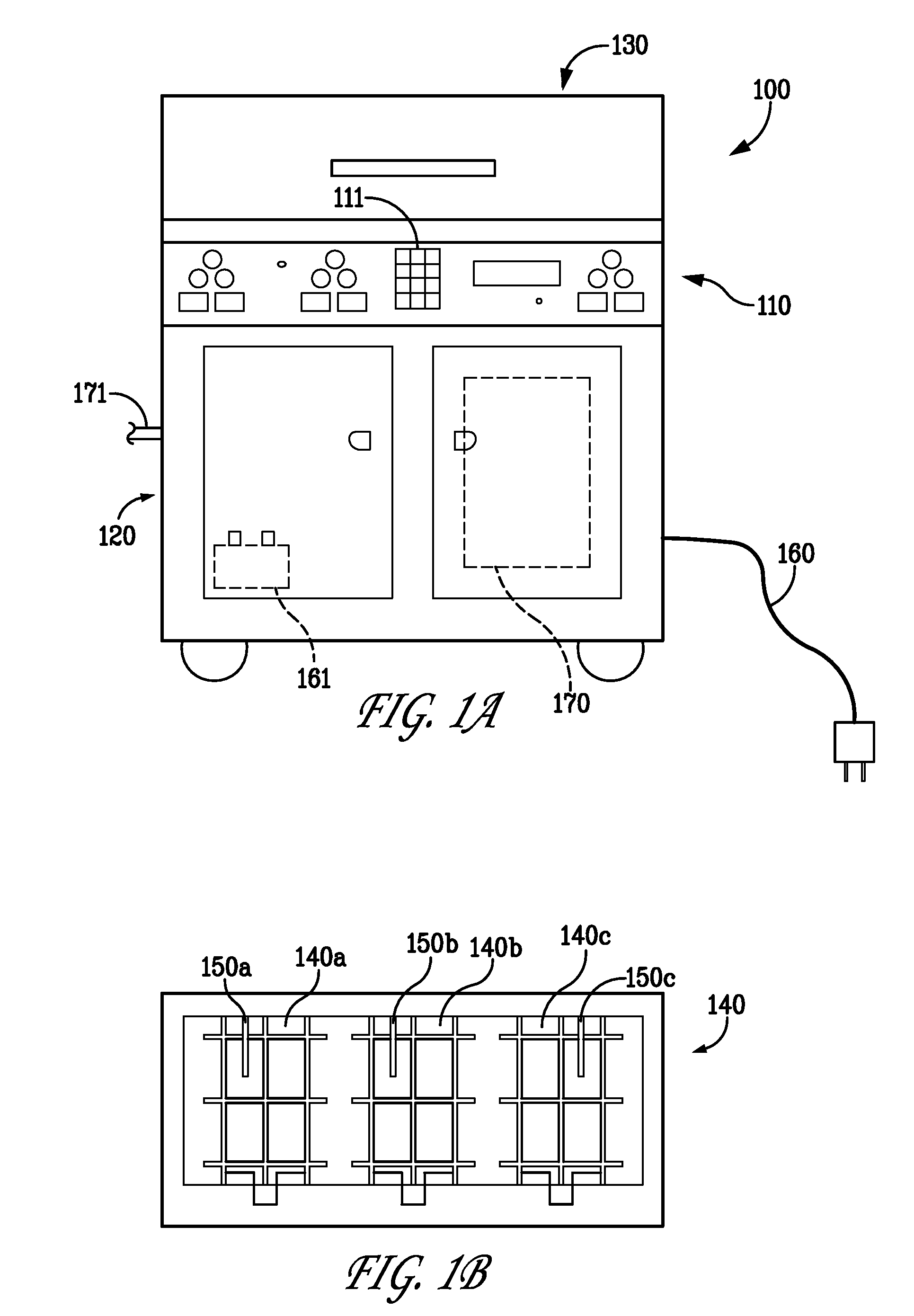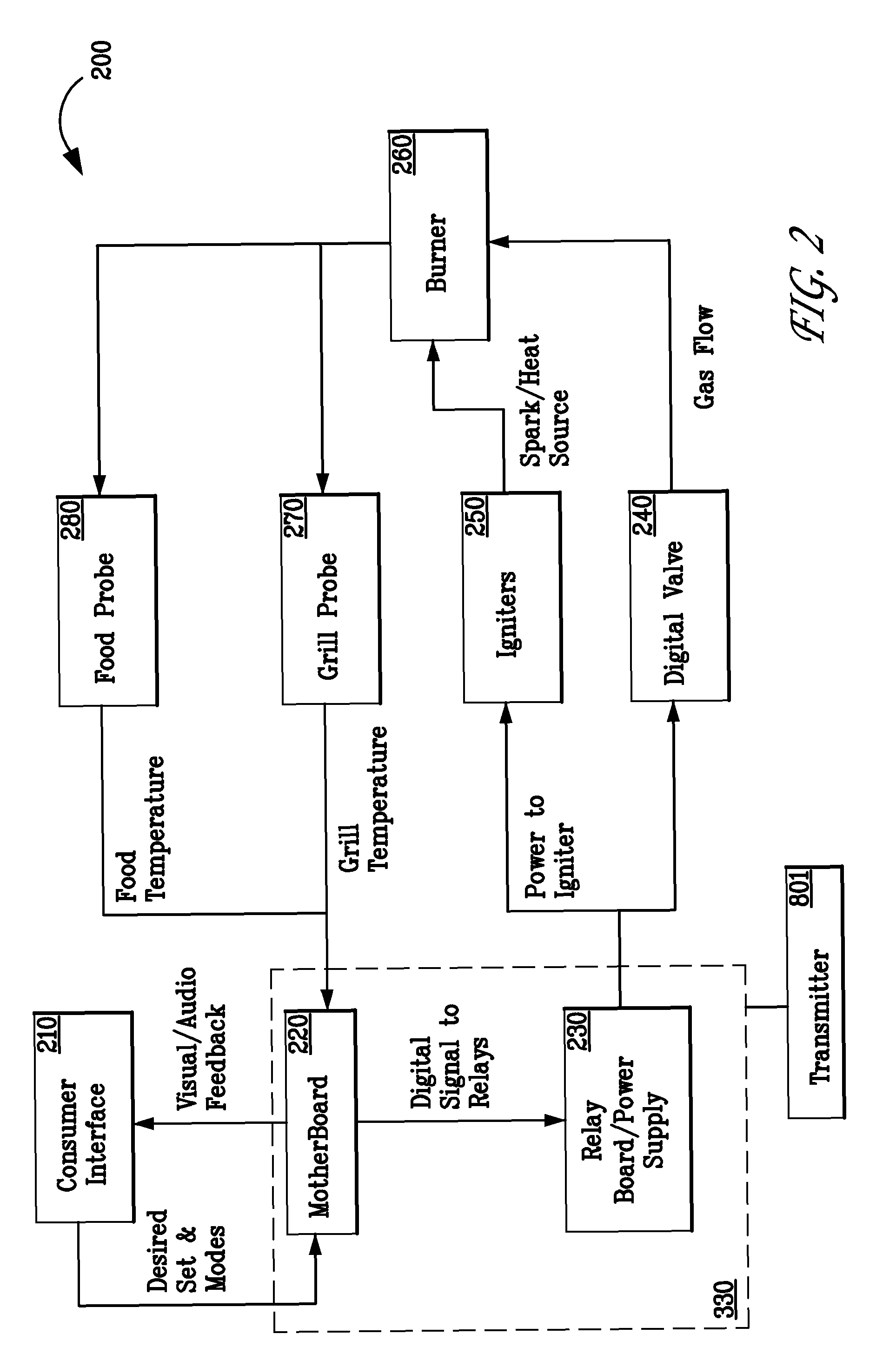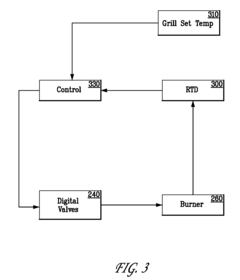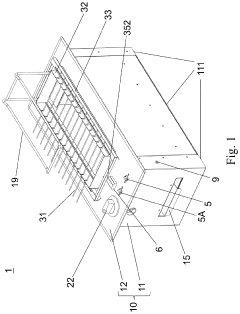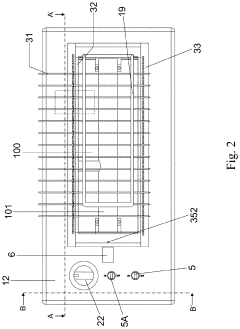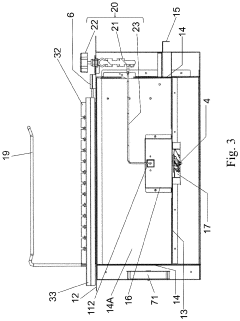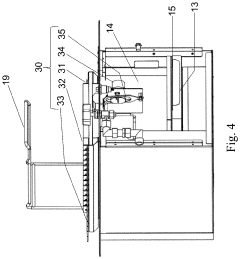How Butane Optimizes the Performance of Gas Grill Technologies
JUL 25, 20259 MIN READ
Generate Your Research Report Instantly with AI Agent
Patsnap Eureka helps you evaluate technical feasibility & market potential.
Butane in Gas Grills: Evolution and Objectives
The evolution of gas grill technologies has been closely intertwined with the optimization of fuel sources, with butane playing a pivotal role in enhancing performance and efficiency. Butane, a highly flammable hydrocarbon, has been utilized in gas grills since the mid-20th century, offering several advantages over traditional propane-based systems.
The journey of butane in gas grill technologies began in the 1960s when manufacturers started exploring alternative fuel options to improve grill performance. Initially, butane was primarily used in portable camping stoves due to its high energy density and ease of storage. However, its potential for larger-scale cooking applications soon became apparent, leading to its integration into gas grill designs.
Throughout the 1970s and 1980s, researchers and engineers focused on optimizing butane delivery systems within gas grills. This period saw significant advancements in burner design and fuel regulation mechanisms, allowing for more precise temperature control and improved fuel efficiency. The development of specialized butane canisters and connection systems also contributed to the widespread adoption of butane in both residential and commercial gas grills.
The 1990s marked a turning point in butane-powered gas grill technologies, with the introduction of hybrid systems that could utilize both butane and propane. This versatility expanded the market reach of gas grills and provided consumers with greater flexibility in fuel choice. Concurrently, advancements in materials science led to the development of more durable and heat-resistant components, further enhancing the performance of butane-based grills.
In recent years, the focus has shifted towards maximizing energy efficiency and minimizing environmental impact. Researchers have been exploring ways to optimize butane combustion processes, reduce emissions, and improve heat distribution within gas grills. The integration of smart technologies and sensors has also allowed for more precise control over butane flow and temperature regulation, resulting in superior cooking experiences.
Looking ahead, the objectives for butane optimization in gas grill technologies are multifaceted. Researchers aim to develop more efficient burner designs that can extract maximum heat energy from butane while minimizing fuel consumption. There is also a push towards creating cleaner-burning systems that reduce harmful emissions and improve overall air quality during grilling.
Another key objective is to enhance the safety features of butane-powered gas grills. This includes developing advanced leak detection systems, improved ignition mechanisms, and fail-safe shut-off valves to prevent accidents and ensure user safety. Additionally, there is ongoing research into alternative butane formulations and blends that could offer improved performance characteristics while maintaining compatibility with existing grill systems.
The journey of butane in gas grill technologies began in the 1960s when manufacturers started exploring alternative fuel options to improve grill performance. Initially, butane was primarily used in portable camping stoves due to its high energy density and ease of storage. However, its potential for larger-scale cooking applications soon became apparent, leading to its integration into gas grill designs.
Throughout the 1970s and 1980s, researchers and engineers focused on optimizing butane delivery systems within gas grills. This period saw significant advancements in burner design and fuel regulation mechanisms, allowing for more precise temperature control and improved fuel efficiency. The development of specialized butane canisters and connection systems also contributed to the widespread adoption of butane in both residential and commercial gas grills.
The 1990s marked a turning point in butane-powered gas grill technologies, with the introduction of hybrid systems that could utilize both butane and propane. This versatility expanded the market reach of gas grills and provided consumers with greater flexibility in fuel choice. Concurrently, advancements in materials science led to the development of more durable and heat-resistant components, further enhancing the performance of butane-based grills.
In recent years, the focus has shifted towards maximizing energy efficiency and minimizing environmental impact. Researchers have been exploring ways to optimize butane combustion processes, reduce emissions, and improve heat distribution within gas grills. The integration of smart technologies and sensors has also allowed for more precise control over butane flow and temperature regulation, resulting in superior cooking experiences.
Looking ahead, the objectives for butane optimization in gas grill technologies are multifaceted. Researchers aim to develop more efficient burner designs that can extract maximum heat energy from butane while minimizing fuel consumption. There is also a push towards creating cleaner-burning systems that reduce harmful emissions and improve overall air quality during grilling.
Another key objective is to enhance the safety features of butane-powered gas grills. This includes developing advanced leak detection systems, improved ignition mechanisms, and fail-safe shut-off valves to prevent accidents and ensure user safety. Additionally, there is ongoing research into alternative butane formulations and blends that could offer improved performance characteristics while maintaining compatibility with existing grill systems.
Market Trends in Butane-Powered Grilling
The butane-powered grilling market has witnessed significant growth in recent years, driven by consumer demand for portable, efficient, and high-performance outdoor cooking solutions. This trend is particularly evident in urban areas where space constraints and regulations often limit the use of traditional propane or charcoal grills. The market for butane-powered grills has expanded beyond casual campers and tailgaters to include urban dwellers, outdoor enthusiasts, and even professional chefs seeking versatile cooking options.
One of the key factors fueling this market growth is the increasing popularity of outdoor dining and entertainment. Consumers are increasingly investing in outdoor living spaces, creating a demand for compact and efficient grilling solutions that can be easily stored and transported. Butane-powered grills fit this niche perfectly, offering a balance of portability and performance that appeals to a wide range of users.
The market has also seen a shift towards more sophisticated butane grill designs, incorporating features such as precise temperature control, multiple burners, and even smart technology integration. These advancements have positioned butane grills as viable alternatives to traditional gas grills for many consumers, expanding their appeal beyond just the portable grill segment.
Environmental concerns and regulations have also played a role in shaping market trends. Butane is generally considered a cleaner-burning fuel compared to propane or charcoal, aligning with growing consumer preferences for more eco-friendly products. This has led to increased adoption in areas with strict environmental regulations or fire safety concerns.
The COVID-19 pandemic has further accelerated market growth, as more people turned to outdoor cooking and dining as a safe social activity. This trend has continued post-pandemic, with many consumers maintaining their newfound appreciation for outdoor cooking and entertaining.
Geographically, the market for butane-powered grills has seen strong growth in North America, Europe, and parts of Asia-Pacific. In North America, the market has been particularly robust in urban centers and among younger demographics. Europe has seen increased adoption due to stringent environmental regulations and a cultural emphasis on outdoor leisure activities. In Asia-Pacific, countries like Japan and South Korea have embraced butane grills as space-saving alternatives to traditional cooking methods.
Looking ahead, the market for butane-powered grills is expected to continue its growth trajectory. Manufacturers are likely to focus on innovation in areas such as fuel efficiency, heat distribution, and smart features to differentiate their products and capture market share. The integration of butane grills with outdoor kitchen concepts and the development of hybrid fuel systems that can utilize both butane and propane are emerging trends that may shape the future of this market.
One of the key factors fueling this market growth is the increasing popularity of outdoor dining and entertainment. Consumers are increasingly investing in outdoor living spaces, creating a demand for compact and efficient grilling solutions that can be easily stored and transported. Butane-powered grills fit this niche perfectly, offering a balance of portability and performance that appeals to a wide range of users.
The market has also seen a shift towards more sophisticated butane grill designs, incorporating features such as precise temperature control, multiple burners, and even smart technology integration. These advancements have positioned butane grills as viable alternatives to traditional gas grills for many consumers, expanding their appeal beyond just the portable grill segment.
Environmental concerns and regulations have also played a role in shaping market trends. Butane is generally considered a cleaner-burning fuel compared to propane or charcoal, aligning with growing consumer preferences for more eco-friendly products. This has led to increased adoption in areas with strict environmental regulations or fire safety concerns.
The COVID-19 pandemic has further accelerated market growth, as more people turned to outdoor cooking and dining as a safe social activity. This trend has continued post-pandemic, with many consumers maintaining their newfound appreciation for outdoor cooking and entertaining.
Geographically, the market for butane-powered grills has seen strong growth in North America, Europe, and parts of Asia-Pacific. In North America, the market has been particularly robust in urban centers and among younger demographics. Europe has seen increased adoption due to stringent environmental regulations and a cultural emphasis on outdoor leisure activities. In Asia-Pacific, countries like Japan and South Korea have embraced butane grills as space-saving alternatives to traditional cooking methods.
Looking ahead, the market for butane-powered grills is expected to continue its growth trajectory. Manufacturers are likely to focus on innovation in areas such as fuel efficiency, heat distribution, and smart features to differentiate their products and capture market share. The integration of butane grills with outdoor kitchen concepts and the development of hybrid fuel systems that can utilize both butane and propane are emerging trends that may shape the future of this market.
Current Butane Grill Tech: Challenges and Limitations
Current butane grill technology, while offering significant advantages over traditional charcoal grills, still faces several challenges and limitations that impact its performance and user experience. One of the primary issues is the inconsistent heat distribution across the cooking surface. Butane grills often struggle to maintain uniform temperatures, resulting in hot and cold spots that can lead to unevenly cooked food.
Another significant challenge is the limited temperature range of many butane grills. While they can achieve high temperatures quickly, they often lack the ability to maintain low, steady heat for slow cooking or smoking. This restricts the versatility of the grill and limits the types of dishes that can be prepared effectively.
Fuel efficiency remains a concern for butane grill users. The small, portable canisters typically used in these grills have a limited capacity, which can be quickly depleted during longer cooking sessions or when catering for larger groups. This necessitates frequent canister changes and can interrupt the cooking process.
Wind resistance is another area where current butane grill technology falls short. Many models are susceptible to wind interference, which can extinguish the flame or significantly reduce heating efficiency. This limitation makes outdoor cooking challenging in less-than-ideal weather conditions.
The ignition systems in some butane grills can be unreliable, particularly in older or lower-end models. Users may experience difficulties in lighting the grill or maintaining a consistent flame, which can be frustrating and time-consuming.
Safety concerns also persist with current butane grill technology. The high-pressure nature of butane fuel systems can pose risks if not properly maintained or operated. Leaks, though rare, can be dangerous due to the flammable nature of butane gas.
From an environmental perspective, butane grills face criticism for their reliance on non-renewable fossil fuels. The disposable nature of many butane canisters also raises concerns about waste and sustainability.
Lastly, the compact size of many butane grills, while advantageous for portability, often results in limited cooking space. This can be a significant drawback for users needing to cook larger quantities of food or multiple dishes simultaneously.
Addressing these challenges and limitations will be crucial for the future development of butane grill technology, driving innovations that enhance performance, safety, and user satisfaction.
Another significant challenge is the limited temperature range of many butane grills. While they can achieve high temperatures quickly, they often lack the ability to maintain low, steady heat for slow cooking or smoking. This restricts the versatility of the grill and limits the types of dishes that can be prepared effectively.
Fuel efficiency remains a concern for butane grill users. The small, portable canisters typically used in these grills have a limited capacity, which can be quickly depleted during longer cooking sessions or when catering for larger groups. This necessitates frequent canister changes and can interrupt the cooking process.
Wind resistance is another area where current butane grill technology falls short. Many models are susceptible to wind interference, which can extinguish the flame or significantly reduce heating efficiency. This limitation makes outdoor cooking challenging in less-than-ideal weather conditions.
The ignition systems in some butane grills can be unreliable, particularly in older or lower-end models. Users may experience difficulties in lighting the grill or maintaining a consistent flame, which can be frustrating and time-consuming.
Safety concerns also persist with current butane grill technology. The high-pressure nature of butane fuel systems can pose risks if not properly maintained or operated. Leaks, though rare, can be dangerous due to the flammable nature of butane gas.
From an environmental perspective, butane grills face criticism for their reliance on non-renewable fossil fuels. The disposable nature of many butane canisters also raises concerns about waste and sustainability.
Lastly, the compact size of many butane grills, while advantageous for portability, often results in limited cooking space. This can be a significant drawback for users needing to cook larger quantities of food or multiple dishes simultaneously.
Addressing these challenges and limitations will be crucial for the future development of butane grill technology, driving innovations that enhance performance, safety, and user satisfaction.
Existing Butane Optimization Solutions for Grills
01 Butane fuel systems for portable devices
Various improvements in butane fuel systems for portable devices such as lighters, torches, and stoves. These innovations focus on enhancing fuel efficiency, safety, and overall performance of butane-powered devices.- Butane fuel systems for portable devices: Various improvements in butane fuel systems for portable devices such as lighters, torches, and camping stoves. These innovations focus on enhancing fuel efficiency, safety, and overall performance of butane-powered devices.
- Butane purification and processing: Methods and systems for purifying and processing butane to improve its performance as a fuel. This includes techniques for removing impurities, enhancing combustion properties, and optimizing butane for specific applications.
- Butane storage and dispensing systems: Innovative designs for butane storage containers and dispensing systems. These improvements aim to enhance safety, prevent leakage, and improve the ease of use for consumers and industrial applications.
- Butane blending and additives: Research into butane blending with other fuels and the use of additives to enhance performance. This includes studies on improving combustion efficiency, reducing emissions, and optimizing fuel mixtures for specific engines or applications.
- Butane-powered heating and cooking appliances: Development of efficient and safe butane-powered heating and cooking appliances. These innovations focus on improving heat output, fuel consumption, and safety features in portable stoves, heaters, and other similar devices.
02 Butane purification and separation processes
Methods and systems for purifying and separating butane from other hydrocarbons. These processes aim to improve the quality and performance of butane for various industrial and commercial applications.Expand Specific Solutions03 Butane storage and dispensing systems
Innovations in butane storage containers and dispensing mechanisms. These developments focus on improving safety, convenience, and efficiency in storing and dispensing butane for various uses.Expand Specific Solutions04 Butane-based refrigeration systems
Advancements in refrigeration systems using butane as a refrigerant. These innovations aim to improve energy efficiency, environmental friendliness, and overall performance of cooling systems.Expand Specific Solutions05 Butane synthesis and production methods
Novel approaches to synthesizing and producing butane, including catalytic processes and reaction optimizations. These methods aim to improve yield, purity, and cost-effectiveness of butane production for various industrial applications.Expand Specific Solutions
Leading Manufacturers in Butane Grill Industry
The market for butane-optimized gas grill technologies is in a growth phase, driven by increasing demand for high-performance outdoor cooking appliances. The global gas grill market is expected to reach significant size in the coming years, with butane optimization playing a crucial role in enhancing performance. Major players like Weber-Stephen Products LLC are leading innovation in this space, while petrochemical giants such as SABIC, Sinopec, and Saudi Aramco are likely involved in supplying raw materials. The technology is maturing rapidly, with companies like Gevo Inc. and Phillips 66 potentially contributing to advancements in fuel efficiency and environmental sustainability. As the market evolves, collaboration between grill manufacturers and energy companies will be key to driving further innovation and market expansion.
China Petroleum & Chemical Corp.
Technical Solution: China Petroleum & Chemical Corp. (Sinopec) has made significant advancements in butane production and purification technologies, which directly impact gas grill performance. The company has developed high-efficiency catalytic dehydrogenation processes that produce high-purity butane, resulting in cleaner-burning fuel for gas grills[6]. Sinopec's advanced fractionation techniques allow for the separation of different hydrocarbon components, ensuring consistent butane quality. Their research has led to the development of additives that enhance butane stability and reduce the formation of carbon deposits in grill burners, thereby improving long-term performance and reducing maintenance needs[7]. Additionally, Sinopec has invested in smart distribution systems that maintain butane quality during transportation and storage, ensuring that the fuel reaches end-users in optimal condition for use in gas grills.
Strengths: Large-scale production capabilities, advanced purification technologies, and extensive distribution network. Weaknesses: Primary focus on fuel production rather than end-user appliances, and potential environmental concerns associated with fossil fuel processing.
Saudi Arabian Oil Co.
Technical Solution: Saudi Arabian Oil Co. (Saudi Aramco) has invested heavily in research and development to improve the quality and performance of butane for various applications, including gas grills. The company has pioneered advanced extraction and refining processes that yield high-purity butane with minimal impurities, resulting in more efficient combustion in gas grill burners[8]. Saudi Aramco's proprietary blending technologies allow for the creation of custom butane mixtures optimized for specific grill types and environmental conditions. Their research into molecular structure modification has led to butane formulations with improved vaporization characteristics, enabling faster heat-up times and more responsive temperature control in gas grills[9]. The company has also developed corrosion-resistant additives that protect grill components, extending the lifespan of equipment and maintaining performance over time.
Strengths: Vast resources for research and development, global distribution capabilities, and expertise in fuel optimization. Weaknesses: Limited direct involvement in grill manufacturing, and potential geopolitical factors affecting global supply.
Key Innovations in Butane Combustion for Grills
Gas grill
PatentActiveUS8863734B2
Innovation
- A control system for gas grills featuring multiple fuel flow valves, temperature sensors, and a control unit that automatically adjusts fuel delivery to maintain predetermined temperatures across multiple grilling zones, incorporating user interface settings and flare-up sensing to ensure consistent cooking.
Fully Automatic and Efficiently Energy-Saving Barbecue Grill
PatentActiveUS20210315419A1
Innovation
- A fully automatic barbecue grill featuring a smokeless heating pipe, gas control device for efficient fuel gas combustion, and an automatic grill device that rotates food periodically, utilizing a speed-controlled fan for controlled air-fuel mixing and a synchronous motor for automated food rotation.
Safety Regulations for Butane Grill Technologies
Safety regulations for butane grill technologies have evolved significantly to address the unique characteristics and potential risks associated with butane as a fuel source. These regulations aim to ensure the safe operation of butane-powered grills while maximizing their performance benefits. Key safety standards focus on the design, construction, and operation of butane grills, with particular emphasis on fuel containment, ventilation, and ignition systems.
Regulatory bodies, such as the Consumer Product Safety Commission (CPSC) in the United States and the European Committee for Standardization (CEN) in Europe, have established comprehensive guidelines for butane grill manufacturers. These guidelines mandate specific safety features, including automatic shut-off valves, flame failure devices, and pressure relief mechanisms. Such features are crucial in preventing gas leaks and minimizing the risk of fire or explosion.
Butane grill designs must incorporate robust fuel storage systems to prevent accidental leaks or ruptures. Regulations typically require the use of high-quality, corrosion-resistant materials for fuel canisters and connection points. Additionally, manufacturers must ensure that fuel canisters are easily replaceable while maintaining a secure seal when connected to the grill.
Ventilation requirements are another critical aspect of butane grill safety regulations. Proper airflow is essential to prevent the accumulation of unburned gas and ensure complete combustion. Manufacturers must design grills with adequate ventilation ports and provide clear instructions for safe outdoor use. Some regulations also mandate the inclusion of carbon monoxide detectors in enclosed spaces where butane grills might be used.
Ignition systems in butane grills are subject to stringent safety standards to minimize the risk of accidental ignition or gas buildup. Regulations often require the implementation of piezoelectric or electronic ignition mechanisms that provide reliable and controlled lighting of the burners. These systems must be designed to prevent gas flow until ignition is confirmed, reducing the potential for dangerous gas accumulation.
Safety labeling and user instructions are integral components of butane grill regulations. Manufacturers are required to provide clear, concise, and easily understandable safety information on the product itself and in accompanying documentation. This includes warnings about proper use, storage, and maintenance of the grill, as well as instructions for safe fuel canister replacement and disposal.
Compliance testing and certification processes are mandated to ensure that butane grills meet all applicable safety standards before entering the market. These tests evaluate the grill's performance under various conditions, including extreme temperatures, wind, and simulated accidents. Certification bodies conduct rigorous assessments to verify that grills meet or exceed the minimum safety requirements set forth by regulatory agencies.
Regulatory bodies, such as the Consumer Product Safety Commission (CPSC) in the United States and the European Committee for Standardization (CEN) in Europe, have established comprehensive guidelines for butane grill manufacturers. These guidelines mandate specific safety features, including automatic shut-off valves, flame failure devices, and pressure relief mechanisms. Such features are crucial in preventing gas leaks and minimizing the risk of fire or explosion.
Butane grill designs must incorporate robust fuel storage systems to prevent accidental leaks or ruptures. Regulations typically require the use of high-quality, corrosion-resistant materials for fuel canisters and connection points. Additionally, manufacturers must ensure that fuel canisters are easily replaceable while maintaining a secure seal when connected to the grill.
Ventilation requirements are another critical aspect of butane grill safety regulations. Proper airflow is essential to prevent the accumulation of unburned gas and ensure complete combustion. Manufacturers must design grills with adequate ventilation ports and provide clear instructions for safe outdoor use. Some regulations also mandate the inclusion of carbon monoxide detectors in enclosed spaces where butane grills might be used.
Ignition systems in butane grills are subject to stringent safety standards to minimize the risk of accidental ignition or gas buildup. Regulations often require the implementation of piezoelectric or electronic ignition mechanisms that provide reliable and controlled lighting of the burners. These systems must be designed to prevent gas flow until ignition is confirmed, reducing the potential for dangerous gas accumulation.
Safety labeling and user instructions are integral components of butane grill regulations. Manufacturers are required to provide clear, concise, and easily understandable safety information on the product itself and in accompanying documentation. This includes warnings about proper use, storage, and maintenance of the grill, as well as instructions for safe fuel canister replacement and disposal.
Compliance testing and certification processes are mandated to ensure that butane grills meet all applicable safety standards before entering the market. These tests evaluate the grill's performance under various conditions, including extreme temperatures, wind, and simulated accidents. Certification bodies conduct rigorous assessments to verify that grills meet or exceed the minimum safety requirements set forth by regulatory agencies.
Environmental Impact of Butane Grill Systems
The environmental impact of butane grill systems is a crucial consideration in the development and adoption of gas grill technologies. Butane, as a fossil fuel, contributes to greenhouse gas emissions when burned, albeit at lower levels compared to other hydrocarbon fuels. The combustion of butane produces carbon dioxide and water vapor, which are primary contributors to global warming. However, the efficiency of butane in gas grills can lead to reduced overall emissions compared to traditional charcoal grills.
Butane grill systems generally have a smaller carbon footprint during operation due to their higher energy efficiency. The controlled nature of gas combustion allows for more precise temperature regulation, resulting in less wasted fuel and reduced cooking times. This efficiency translates to lower overall fuel consumption and, consequently, decreased emissions per cooking session. Additionally, butane grills produce fewer particulate emissions than charcoal grills, contributing to better local air quality.
The production and distribution of butane for grill systems also have environmental implications. The extraction, refining, and transportation of butane require energy and resources, contributing to the overall environmental impact of the fuel. However, the compact nature of butane canisters used in portable grills can lead to more efficient transportation and storage compared to bulkier fuel alternatives.
Waste management is another environmental aspect to consider. Butane canisters, while recyclable, often end up in landfills if not properly disposed of. The development of more effective recycling programs and the use of refillable canisters could significantly reduce the waste associated with butane grill systems. Some manufacturers are exploring eco-friendly packaging options and promoting responsible disposal practices to mitigate this issue.
The longevity and durability of butane grill systems also play a role in their environmental impact. Well-designed and maintained gas grills typically have longer lifespans than charcoal grills, reducing the frequency of replacement and the associated manufacturing emissions. Furthermore, the ease of cleaning butane grills can lead to better maintenance practices, extending the life of the equipment and reducing waste.
Innovations in butane grill technology are focusing on further improving environmental performance. This includes the development of more efficient burners that maximize heat output while minimizing fuel consumption. Some manufacturers are also exploring hybrid systems that combine butane with renewable energy sources, such as solar-powered ignition or temperature control systems, to reduce the overall carbon footprint of grilling activities.
Butane grill systems generally have a smaller carbon footprint during operation due to their higher energy efficiency. The controlled nature of gas combustion allows for more precise temperature regulation, resulting in less wasted fuel and reduced cooking times. This efficiency translates to lower overall fuel consumption and, consequently, decreased emissions per cooking session. Additionally, butane grills produce fewer particulate emissions than charcoal grills, contributing to better local air quality.
The production and distribution of butane for grill systems also have environmental implications. The extraction, refining, and transportation of butane require energy and resources, contributing to the overall environmental impact of the fuel. However, the compact nature of butane canisters used in portable grills can lead to more efficient transportation and storage compared to bulkier fuel alternatives.
Waste management is another environmental aspect to consider. Butane canisters, while recyclable, often end up in landfills if not properly disposed of. The development of more effective recycling programs and the use of refillable canisters could significantly reduce the waste associated with butane grill systems. Some manufacturers are exploring eco-friendly packaging options and promoting responsible disposal practices to mitigate this issue.
The longevity and durability of butane grill systems also play a role in their environmental impact. Well-designed and maintained gas grills typically have longer lifespans than charcoal grills, reducing the frequency of replacement and the associated manufacturing emissions. Furthermore, the ease of cleaning butane grills can lead to better maintenance practices, extending the life of the equipment and reducing waste.
Innovations in butane grill technology are focusing on further improving environmental performance. This includes the development of more efficient burners that maximize heat output while minimizing fuel consumption. Some manufacturers are also exploring hybrid systems that combine butane with renewable energy sources, such as solar-powered ignition or temperature control systems, to reduce the overall carbon footprint of grilling activities.
Unlock deeper insights with Patsnap Eureka Quick Research — get a full tech report to explore trends and direct your research. Try now!
Generate Your Research Report Instantly with AI Agent
Supercharge your innovation with Patsnap Eureka AI Agent Platform!
